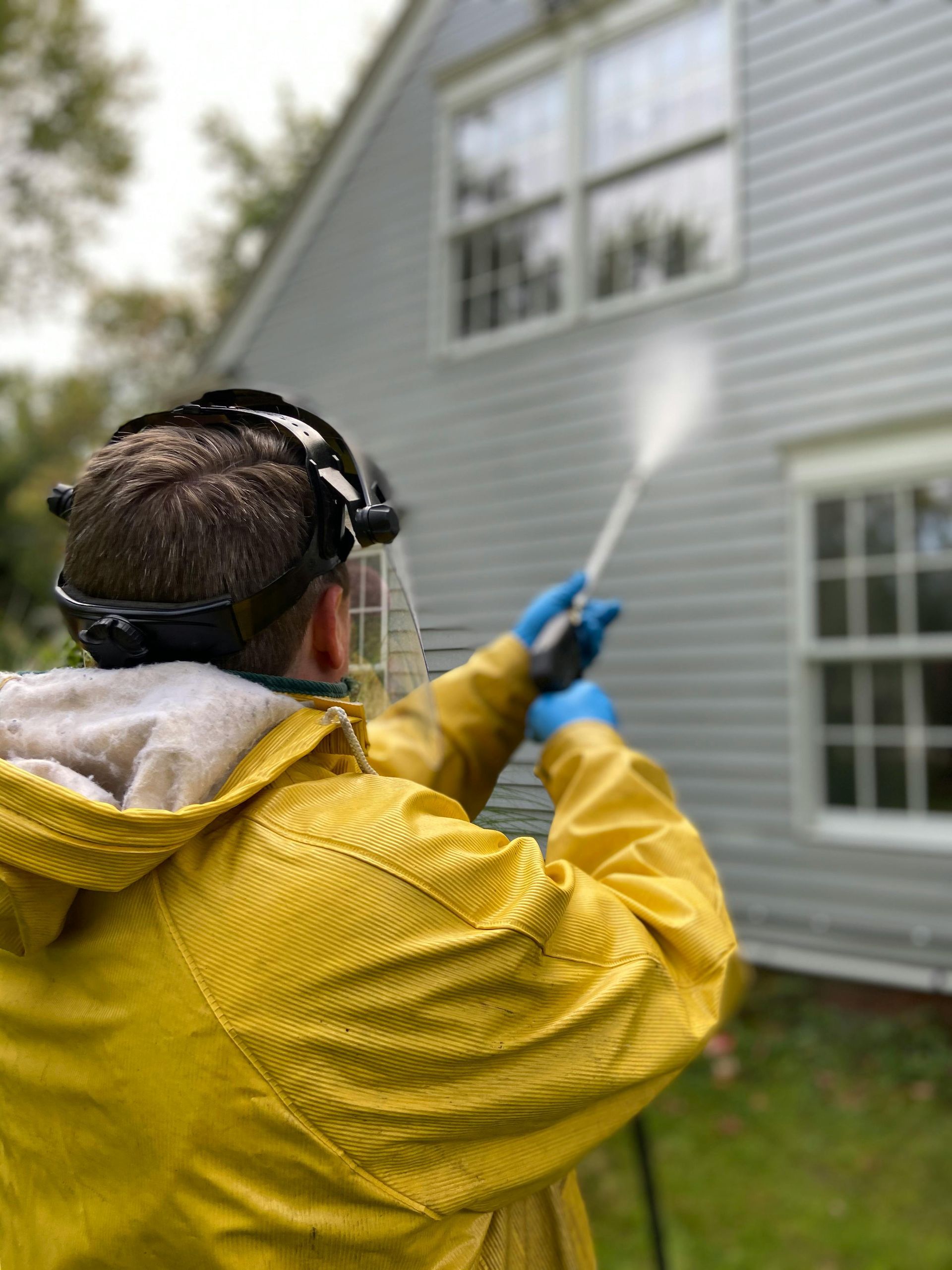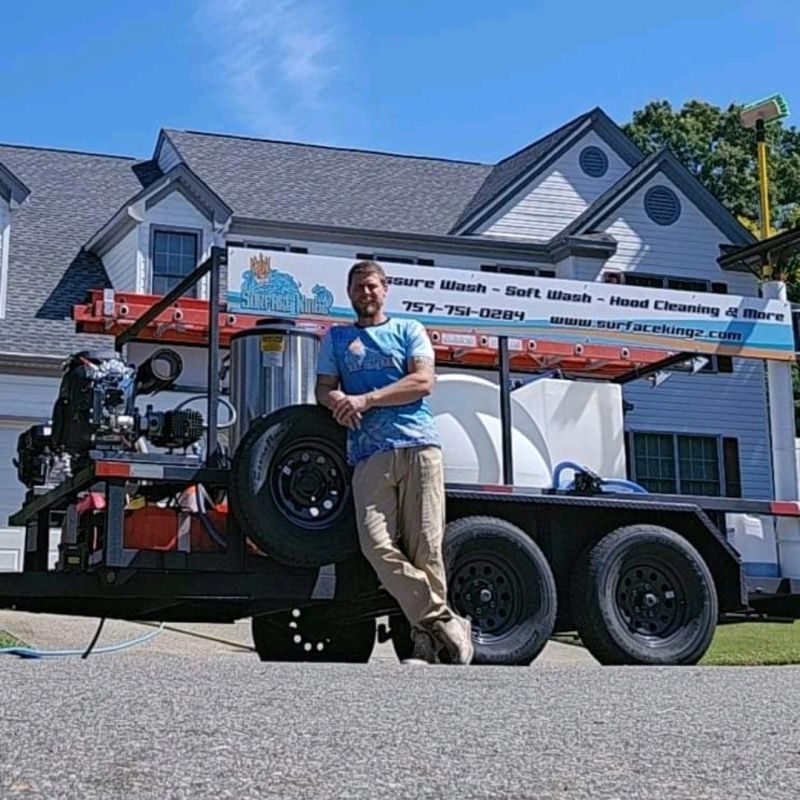Surface Kingz Blog
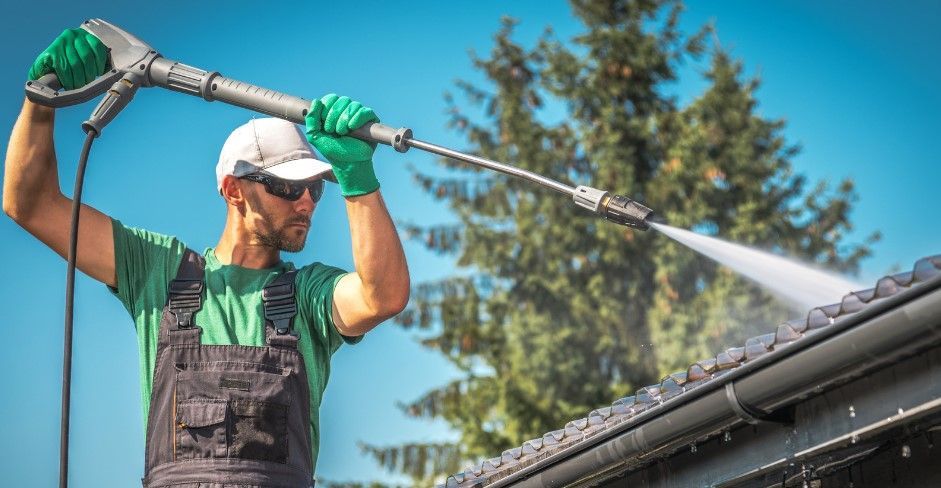
Did you know that thousands of homeowners and business owners visit emergency rooms each year due to pressure washer accidents? Understanding pressure washing safety guidelines can prevent property damage, physical injuries, and toxic exposures. This guide covers the most common hazards, the essential personal protective equipment (PPE), pre-operation checks, safe operation techniques, post-operation maintenance, first aid for injuries, and why hiring a professional service like surfacekingz.com offers superior safety advantages.
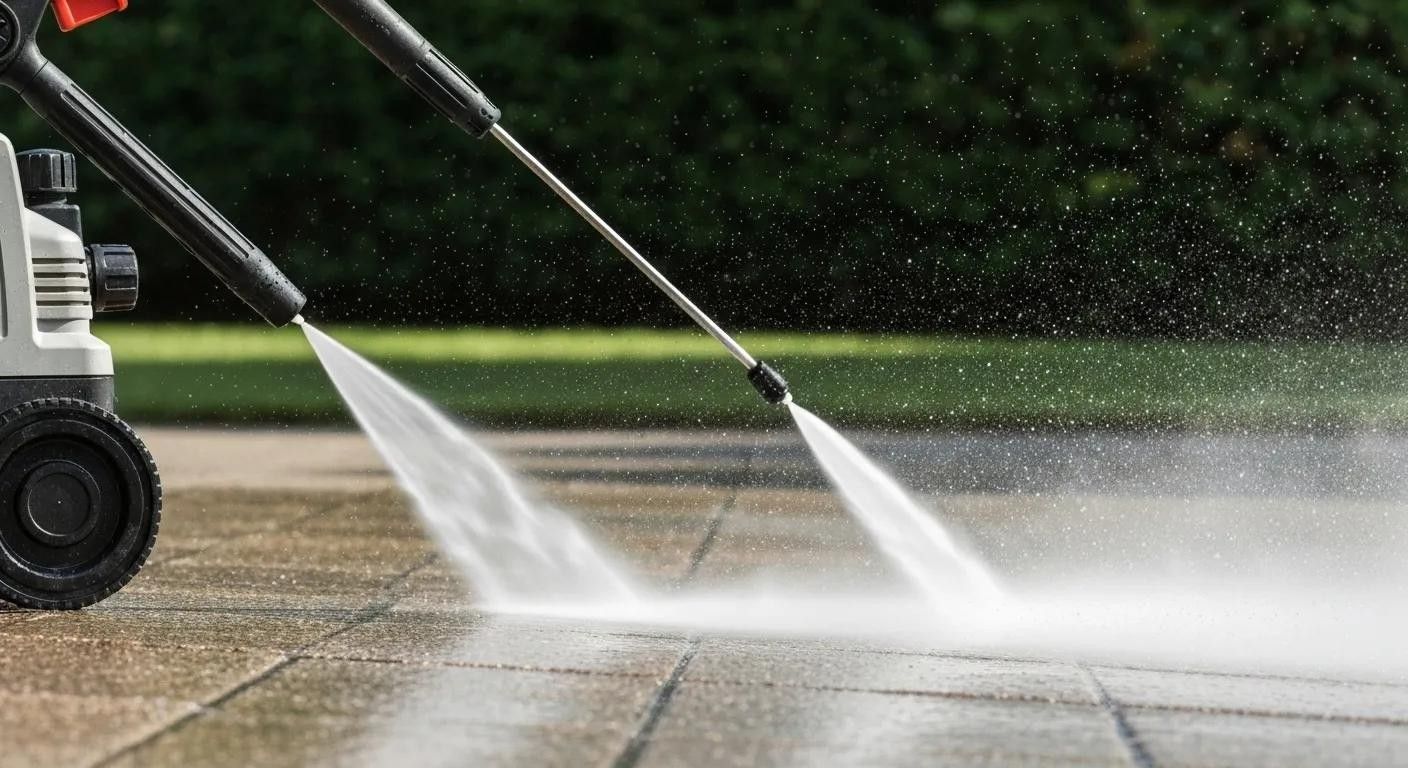
High-power water jets rely on precise specifications—understanding PSI and GPM unlocks cleaning potential while preventing surface damage. In this guide, homeowners and business owners will learn how pressure washer measurements influence performance, durability, and efficiency. Surface Kingz experts share best practices for pump selection, nozzle matching, power‐source choices, maintenance routines, safety measures, buying considerations, and accessory optimization. By mastering high pressure cleaning machine specifications, readers gain confidence in choosing equipment and achieving professional‐grade results.
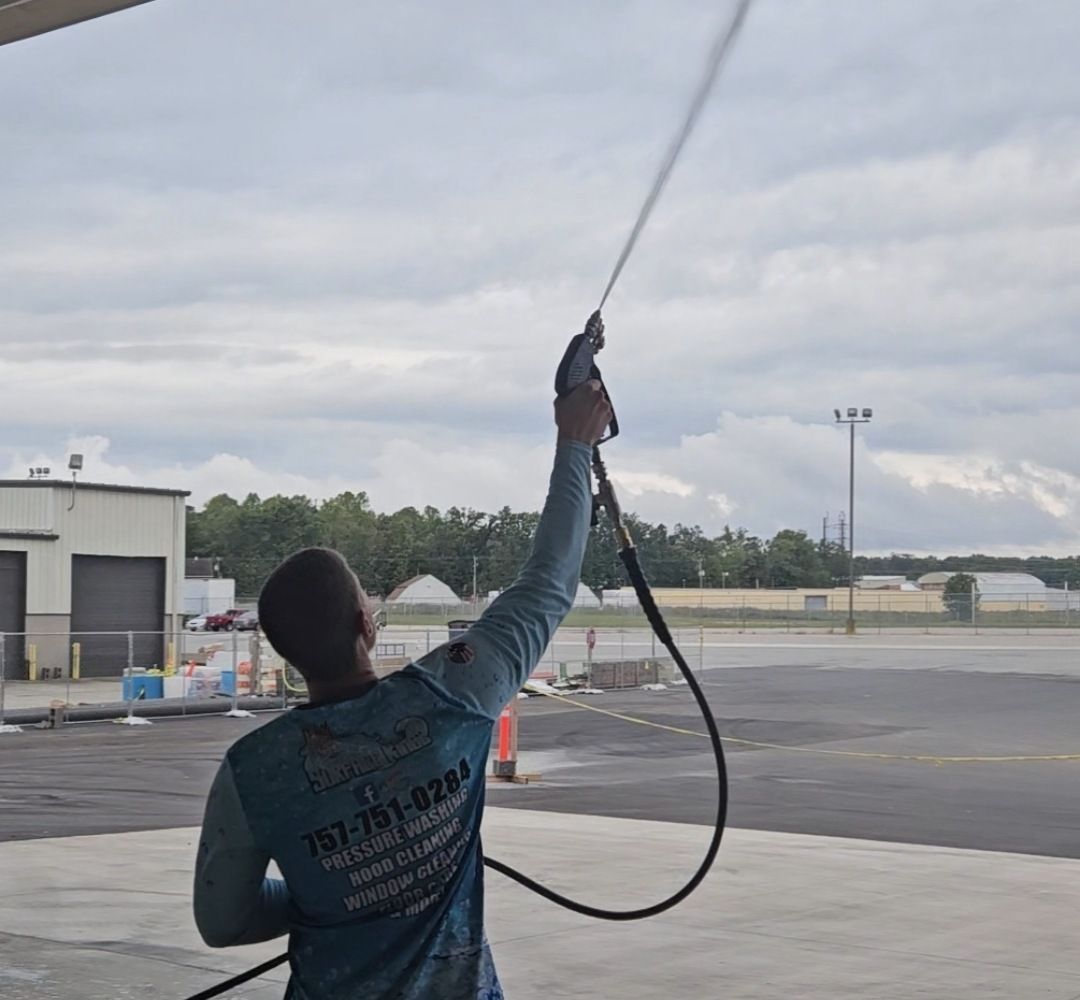
Spring blossoms and fall leaves both signal times when exterior cleaning protects a home’s value and appearance. A seasonal pressure washing checklist guides homeowners through the best window for cleaning, how often to schedule service or DIY sessions, and which surfaces demand attention. This guide covers: When to pressure wash each season and why timing matters Ideal frequency and scheduling tips for lasting protection Surface-specific cleaning priorities for siding, roofs, decks, driveways, and gutters Safety precautions and gear essentials Equipment, detergents, and winterization of tools Long-term benefits of seasonal power washing Customizing checklists for local climate and integrating professional support
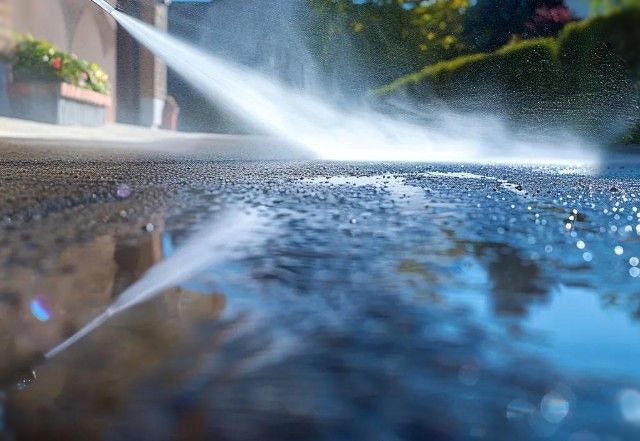
Preventive care for pressure washing success ensures that equipment runs smoothly, avoids costly repairs, and delivers consistent cleaning power for homes and businesses. Home and business owners gain confidence when they follow a structured routine covering daily checks, post-use care, seasonal winterization, common problem fixes, safety guidelines, advanced component servicing, and the differences between gas and electric models. This article maps out: Essenti al daily and pre-use maintenance Best post-use and short-term storage practices Winterization steps for long-term protection Troubleshooting common pressure washer problems Key safety guidelines for secure operation Advanced maintenance on critical components Maintenance distinctions between gas and electric units
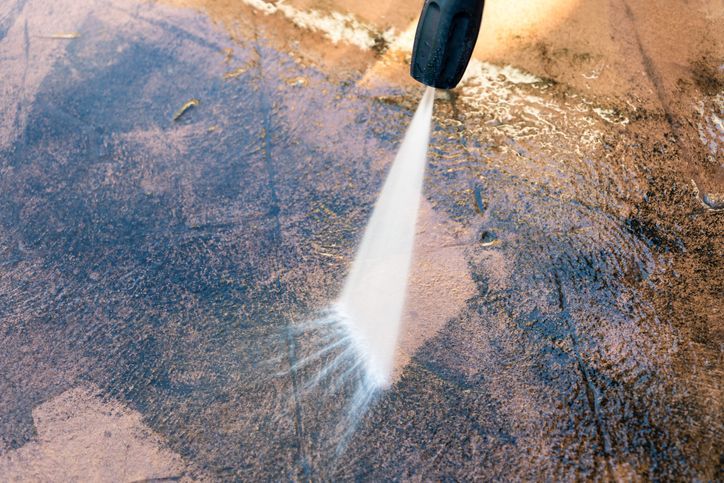
Pressure washing maintains the exterior aesthetics and integrity of both commercial and residential properties. Home and business owners seek these services to eliminate mold, mildew, dirt, stains, and algae from roofs, vinyl siding, patios, driveways, and more. Surface Kingz, a certified pressure washing company serving Hampton, Virginia Beach, Chesapeake, Norfolk, Suffolk, Newport News, and nearby cities, uses advanced equipment and eco-friendly cleaning solutions to deliver superior results. This article provides an in‐depth look at local pressure washing services, detailing processes, benefits, pricing factors, and customer expectations. By understanding which surfaces can be cleaned and what equipment is used, property owners can see how local power washing companies improve curb appeal, extend surface lifespan, and safeguard health and safety. The body content of your post goes here. To edit this text, click on it and delete this default text and start typing your own or paste your own from a different source.
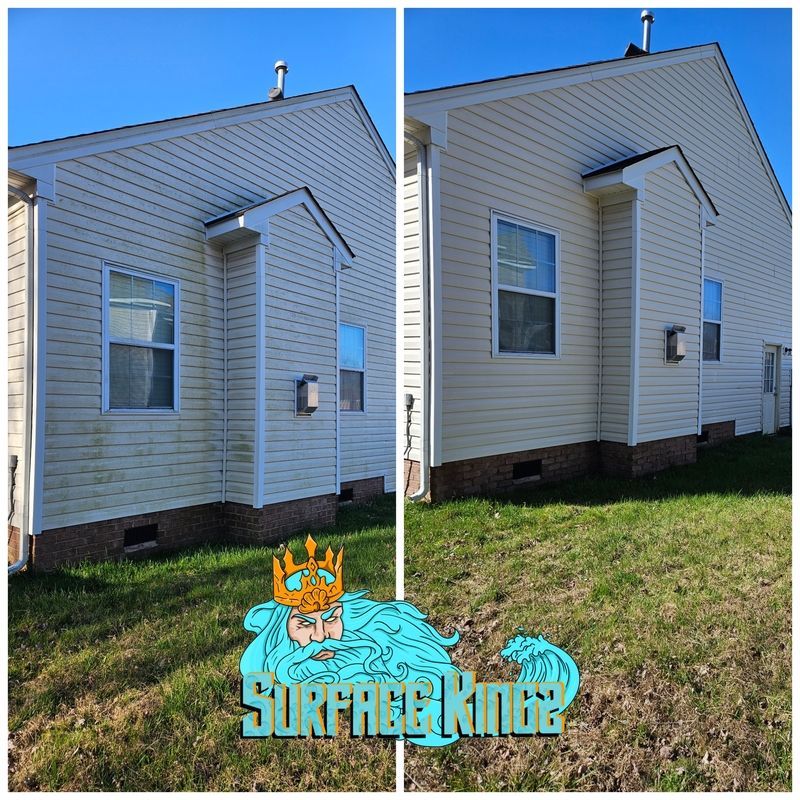
Pressure washing and soft washing are two effective methods for cleaning exterior surfaces, each offering unique benefits and working in distinctly different ways. Pressure washing uses high-pressure water jets to remove dirt, algae, and grime from tough surfaces like driveways, sidewalks, and vinyl siding, while soft washing employs low-pressure streams mixed with cleaning solutions to gently clean delicate surfaces such as roofs, painted exteriors, and stucco. This article reviews both methods by comparing their techniques, benefits, limitations, and cost-effectiveness, helping you decide which approach best meets your property’s cleaning requirements. The purpose here is to explain the mechanisms behind each method, describe the ideal applications, and discuss safety, environmental, and cost considerations. Whether you need to remove stubborn stains from a concrete driveway or clean a roof without causing damage, understanding these methods can help prevent water damage, preserve structure, and extend exterior surface lifespan. Let's explore how pressure washing and soft washing work, examine their respective advantages, and learn when and how to choose the best method for your needs.
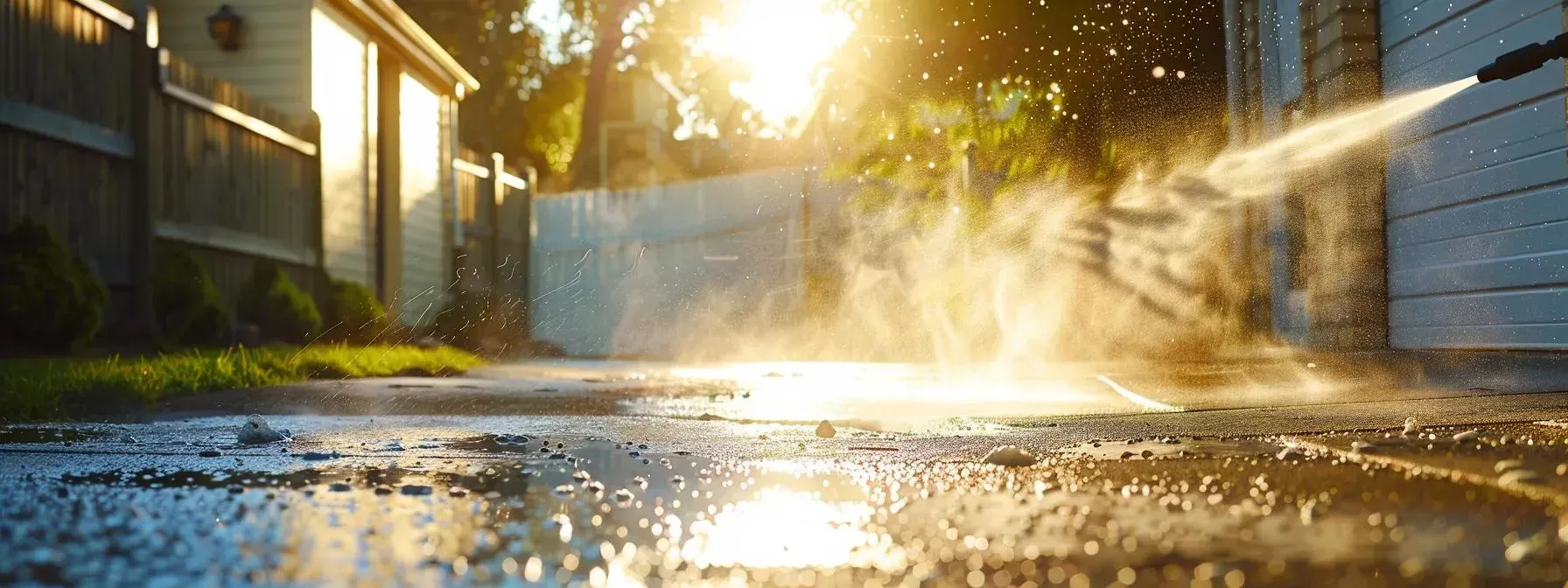
Master Pressure Washing for Driveway Transformation Pressure washing is an effective, environmentally friendly method to restore your driveway’s appearance and functionality. Over time, driveways accumulate oil spots, dirt, and stains that diminish curb appeal and can cause structural deterioration. Surface Kingz, a professional pressure washing company, offers expert services to home and business owners seeking to revitalize concrete, asphalt, and paver driveways. This guide outlines the best pressure washing techniques for various driveway materials, appropriate stain removal methods, and key insights into DIY versus professional services. It also covers pricing factors, maintenance tips, and eco-friendly trends in driveway cleaning. Ultimately, readers will gain actionable steps and expert recommendations to preserve their driveways and enhance both aesthetics and longevity. Understanding the proper methodologies and equipment can transform your driveway while safeguarding your investment. Let’s explore optimal pressure washing techniques, suitable chemical solutions, and crucial safety measures for outstanding results. What Are the Best Pressure Washing Techniques for Different Driveway Materials? Different driveway surfaces require specific pressure washing approaches to avoid damage and ensure effective cleaning. Concrete, asphalt, and paver driveways each have unique properties that influence the choice of equipment, pressure settings, and cleaning agents. Selecting the right method is vital to preserve your driveway’s integrity while enhancing its overall appearance. How to Pressure Wash Concrete Driveways Effectively Concrete driveways are durable yet porous, making them vulnerable to stains like oil and rust. The recommended method is to balance water pressure with appropriate chemical detergents designed for concrete. In practice, using a fan tip nozzle set between 3000 and 3500 psi helps break down grease and accumulated grime without etching the surface. Pre-treat stubborn stains with a suitable degreaser, then apply a sweeping motion to ensure even cleaning. For heavy staining, a two-stage process—a cleaning solution followed by a high-pressure rinse—can be beneficial. It is important to monitor water runoff for environmental compliance and to prevent damage. Regular cleaning helps avoid buildup that shortens the driveway’s lifespan, and sealing afterward further protects the surface. Additional tips include using a rotary nozzle for corners and conducting a spot test on an inconspicuous area before full application. What Are the Optimal Methods for Asphalt Driveway Cleaning? Asphalt driveways, though less porous than concrete, can be damaged by excessive pressure. A lower pressure setting of around 2500 psi helps avoid stripping the protective bituminous binder from the surface. When cleaning asphalt, it is essential to use gentle yet effective methods. Pre-wetting the surface allows water to loosen dirt, and combining this with a specialized asphalt detergent breaks down stubborn stains such as oil and tar. Begin with light pressure and gradually increase it to avoid eroding the surface, using a wide spray nozzle for uniform water distribution. Prevent water pooling after washing because pooling can lead to cracking during freeze-thaw cycles. A misting rinse following the wash can further protect the asphalt and ensure even drying. How to Clean Paver Driveways Using Pressure Washing Paver driveways—composed of brick or natural stone—require a more delicate approach. Medium pressure settings, typically between 2000 and 2500 psi, work best when cleaning paver surfaces. Effective pressure washing of pavers involves using a fan-shaped spray pattern along with eco-friendly cleaning agents to remove embedded stains without dislodging the individual pavers. It is crucial to hold the nozzle at a consistent angle to prevent lifting the pavers or damaging mortar joints. Pre-treating with a paver-safe detergent protects the color and finish, while a gentle sweep across the entire surface cleans grout lines and crevices. After cleaning, applying a sealer helps lock in the cleanliness and shields the surface from environmental contaminants. Regular maintenance is key to preserving both the look and structural integrity of paver driveways. Which Nozzles and Pressure Settings Work Best for Each Driveway Type? The right combination of nozzle and pressure setting is essential for optimum results. For concrete driveways, a 25-degree fan tip nozzle at 3000 to 3500 psi is ideal, providing the force needed to remove stubborn stains while preserving surface detail. Asphalt driveways work best with a 40-degree nozzle at around 2500 psi, which distributes water over a broader area to minimize damage. For paver driveways, use a nozzle that delivers a gentle, controlled water stream at 2000-2500 psi; using a rotary surface cleaner can improve cleaning efficiency on textured surfaces. Always adjust settings based on the specific driveway conditions and manufacturer recommendations. Testing a small area first lowers the risk of damage while allowing pressure fine-tuning. How Can You Remove Common Driveway Stains With Pressure Washing? Stains such as oil, grease, rust, and mildew significantly diminish curb appeal. Pressure washing combines strong water jets with targeted cleaning agents to break down these contaminants. Using the right cleaning solutions is essential not only for effective stain removal but also for preserving the surface integrity of your driveway. What Are the Most Effective Ways to Remove Oil and Grease Stains? The best method for removing oil and grease includes both chemical and physical actions. Pre-treat the affected area with a degreaser that chemically breaks down oil molecules, making them easier to remove. Allow the degreaser to work for 10 to 15 minutes before pressure washing. Then, use a pressure washer with a 25-degree nozzle at 3000 psi to blast away the emulsified oil without harming the surface. For very severe stains, reapplication may be necessary to ensure complete removal, and this method also helps prevent residual oil from re-penetrating the porous material. How to Eliminate Rust and Other Tough Stains Safely Rust stains respond well to a combination of mild acidic cleaners and pressure washing. Use eco-friendly rust removers containing citric acid or similar compounds to break down rust particles before washing. Allow the product to sit for about 10 minutes for optimal chemical reaction. Then, apply a gentle, low-pressure wash (around 2500 psi) with a wide spray pattern to remove rust without embedding the particles further. For extremely tough stains, a soft brush may be used prior to a secondary rinse, avoiding overly high pressure that might worsen the stain. Which Eco-Friendly Cleaning Solutions Work Best for Stain Removal? Eco-friendly stain removers combine natural acids like vinegar or citric acid with biodegradable detergents. These solutions effectively break down dirt and grime while ensuring that no harmful chemicals remain on the surface or in the runoff. For oil stains, formulas that blend citrus extracts with natural surfactants are effective and safe for various driveway materials. Similarly, for rust, cleaning solutions with citric acid protect the surface while offering powerful stain removal. Such eco-friendly options help maintain both environmental sustainability and the long-term health of your driveway. What Are the Benefits of Professional vs. DIY Driveway Pressure Washing? Choosing between professional and DIY pressure washing can significantly affect both the quality and longevity of your driveway’s clean. Professional pressure washing generally provides more effective, lasting results thanks to advanced equipment, expert techniques, and specialized cleaning solutions. Companies like Surface Kingz bring years of experience and expertise to ensure that delicate surfaces are properly cleaned without damage. What Tools and Safety Measures Are Needed for DIY Pressure Washing? DIY pressure washing requires a high-quality machine, the correct attachments (such as nozzles optimized for your driveway material), and proper safety gear including goggles, gloves, and non-slip footwear. Essential cleaning chemicals include degreasers for oil stains and eco-friendly detergents for routine cleaning. It is vital to secure your work area to protect bystanders, pets, and nearby plants. Reading the equipment manual and gradually increasing pressure helps avoid sudden damage to your sur face. How Does Professional Expertise Improve Driveway Cleaning Results? Professional services offer precise adjustment of pressure, chemical concentrations, and nozzle types custom-tailored to your driveway’s specific needs. Their experience with various materials enables them to avoid common pitfalls and address difficult stains effectively. Using state-of-the-art equipment under strict safety and environmental guidelines, professionals consistently achieve superior cleaning results. They may also offer additional services such as sealing and minor repairs, further extending the driveway’s lifespan. When Should You Hire Experts for Driveway Pressure Washing? Hiring professionals is recommended when your driveway exhibits severe oil, rust, or stubborn stains beyond routine cleaning capabilities. If the surface shows signs of deterioration or requires careful handling—such as a delicate paver installation—professional intervention minimizes the risk of further damage. Additionally, when warranty or contractual obligations exist, certified experts ensure compliance and provide warranty-backed services, making them a valuable long-term investment. How Much Does Pressure Washing a Driveway Cost and What Factors Affect Pricing? The cost of pressure washing a driveway depends on several factors, including the type of surface (concrete, asphalt, or pavers), driveway size, extent of staining, and additional services like sealing or repairs. Pricing can vary based on local market conditions and the intricacy of the cleaning process. What Is the Average Cost for Cleaning Concrete, Asphalt, and Paver Driveways? Professional pressure washing typically costs about $0.15 to $0.50 per square foot for concrete, reflecting both the material’s durability and the potential need for extra degreasing. Asphalt driveways are generally a bit less expensive, around $0.10 to $0.40 per square foot, because they require gentler cleaning. Paver driveways usually fall in the range of $0.20 to $0.60 per square foot due to the need for careful handling of individual stones and grout lines. Which Factors Influence the Final Price of Pressure Washing Services? Key cost factors include the size of the driveway, its overall condition, and the type of cleaning agents required. Supplementary services such as sealing, minor repairs, or pre-treatment of heavy stains can add to the final cost. Additional considerations like travel fees and local regulations may also impact pricing. Homeowners should request detailed quotes to clearly understand the cost breakdown and ensure competitive, quality service. Are There Cost Benefits to Combining Pressure Washing With Sealing or Repairs? Bundled services that combine pressure washing with sealing or minor repair work often result in long-term savings. Sealing not only provides a barrier against future stains and weather damage but also extends the interval between cleanings. Professional packages that include both cleaning and sealing streamline the process, reduce labor redundancy, and enhance the overall durability of the driveway. How Can You Maintain Your Driveway After Pressure Washing for Long-Lasting Results? Proper maintenance after pressure washing is essential for preserving your driveway’s clean appearance and functionality. Regular upkeep, including timely sealing and periodic cleaning, helps prevent the recurring buildup of stains and environmental damage. What Are the Best Practices for Regular Driveway Cleaning and Upkeep? Schedule annual or biannual pressure washing to remove emerging stains before they set in. In between professional cleanings, routinely remove debris using a broom or leaf blower and hose away loose dirt. A light rinse with a garden hose and periodic spot cleaning can help prevent buildup. Early detection and prompt cleaning of minor stains also help maintain the driveway’s overall appearance and prolong its lifespan. How Does Driveway Sealing Protect Surfaces After Pressure Washing? Applying a quality sealant immediately after cleaning locks in the fresh appearance of your driveway. The sealant forms a protective barrier against oil, water, and environmental contaminants, deepening the color and reducing damage from weather fluctuations and chemical spills. For lasting protection, reapply the sealant every 2 to 3 years, depending on usage and exposure, which minimizes the need for frequent intensive cleanings. When and How Often Should You Schedule Pressure Washing for Your Driveway? High-traffic driveways might require pressure washing once or twice a year, while less-used driveways can be cleaned annually. Seasonal variations—such as salt in winter or pollen in summer—may also necessitate more frequent cleaning. Regular visual inspections can help determine when a professional cleaning is needed and can also uncover potential repairs early. What Are the Latest Trends and Eco-Friendly Practices in Driveway Pressure Washing? Advancements in pressure washing technology and a focus on sustainability are shaping modern driveway maintenance. New eco-friendly cleaning agents and energy-efficient equipment are setting industry standards while catering to environmentally conscious clients. How Are Biodegradable Cleaning Solutions Changing Driveway Cleaning? Biodegradable cleaning solutions are crafted from plant-based ingredients that naturally break down, ensuring no harmful chemicals are left behind. These eco-friendly products effectively remove stubborn stains while reducing environmental impact. Their use meets regulatory requirements in many urban areas and appeals to customers seeking sustainable maintenance options—without sacrificing cleaning performance. What New Pressure Washing Technologies Improve Driveway Restoration? Recent technological advancements include robotic pressure washers and surface-sensitive nozzles that adjust pressure based on real-time feedback from the surface. Energy-efficient pumps and water recycling systems further reduce waste and environmental impact. These innovations help operators work more safely and ensure a consistent, damage-free cleaning process, resulting in superior restoration outcomes. How Do Sustainable Practices Benefit Your Driveway and the Environment? Employing sustainable practices—such as using low-pressure settings, biodegradable detergents, and water recycling systems—not only prolongs driveway life but also minimizes environmental harm. These methods reduce chemical runoff, safeguard local ecosystems, and lower the frequency of re-cleanings, saving homeowners money over time. Embracing eco-friendly techniques is both a responsible and economical choice for long-term driveway maintenance. What Are the Most Common Questions About Driveway Pressure Washing? Choosing the right process for cleaning your driveway can be confusing. Below are common questions that address preparation, safety, and post-cleaning maintenance to help guide you in making informed decisions. How Do You Prepare a Driveway Before Pressure Washing? Begin by removing loose debris with a broom or leaf blower. Pre-treat heavy stains with targeted cleaning solutions to loosen embedded dirt and prevent clogging the pressure washer. Cover any nearby plants or objects susceptible to cleaning chemicals, and inspect the driveway for cracks or damage that may require repair before washing. A small test area can help determine the optimal water pressure and chemical concentration for the entire surface. Can Pressure Washing Damage My Driveway? How to Avoid It? Improper pressure settings or incorrect nozzles may damage driveways. To avoid this, use settings and attachments tailored to the specific surface—whether it be concrete, asphalt, or pavers. Professionals typically perform a pre-inspection and adjust equipment accordingly. Taking a careful, gradual approach and ensuring that cleaning chemicals are appropriate for the surface minimizes the risk of erosion, dislodging pavers, or compromising the integrity of the material. What Should You Expect During and After a Professional Pressure Washing Service? Clients can expect a comprehensive process that begins with a detailed inspection to identify stains and vulnerable areas, followed by a thorough cleaning using advanced equipment and eco-friendly detergents. After cleaning, professionals offer maintenance advice and may suggest additional treatments such as sealing. The result is a rejuvenated driveway with enhanced curb appeal and improved long-term protection. Frequently Asked Questions Q: What Are the Key Advantages of Pressure Washing Over Traditional Cleaning Methods? A: Pressure washing quickly removes dirt, stains, and grime using high-pressure water jets. It is more efficient and less labor-intensive than manual scrubbing, while specialized cleaning agents help preserve surface integrity. Q: How Often Should I Pressure Wash My Driveway to Maintain Its Appearance? A: For most driveways, pressure washing every 12 to 18 months is adequate. High-traffic areas might require more frequent cleaning to prevent buildup and reduce wear on sealants and protective coatings. Q: Are Eco-Friendly Pressure Washing Solutions as Effective as Conventional Chemical Cleaners? A: Yes, eco-friendly solutions effectively break down contaminants with a minimal ecological footprint. They offer comparable cleaning power while protecting the environment, making them ideal for homeowners focused on sustainability. Q: Can I Perform Pressure Washing on My Own Without Professional Assistance? A: DIY pressure washing is feasible with the proper equipment, knowledge of correct pressure settings, and safety measures. However, mistakes can lead to surface damage; professionals provide expertise and safe, effective cleaning, particularly for heavily stained or delicate surfaces. Q: What Additional Services Can Enhance the Longevity of a Cleaned Driveway? A: Combining pressure washing with sealant application or minor repair work protects the driveway from future stains and weather damage. Sealants prevent oil and water absorption, extending the driveway’s lifespan and reducing maintenance frequency. Q: How Do Weather Conditions Influence the Pressure Washing Process? A: Moderate temperatures and low humidity are ideal for pressure washing. Excessive cold or heat can affect drying time and cleaning effectiveness, so it’s best to schedule cleaning during stable weather conditions. Final Thoughts Pressure washing is vital for maintaining the appearance and longevity of your driveway. A careful balance of water pressure, cleaning agents, and material-specific techniques is essential for achieving optimal results. Both professional and DIY methods have their merits, with professional services offering advanced equipment and expert handling for more challenging situations. Regular maintenance—including periodic cleaning and sealing—protects the driveway from future stains, weather damage, and natural wear. Embracing eco-friendly practices and modern technologies not only ensures a pristine surface but also safeguards the environment. Consistent application of these recommendations will keep your driveway safe, functional, and visually appealing for years to come. A clean driveway is truly an investment in both aesthetics and durability.
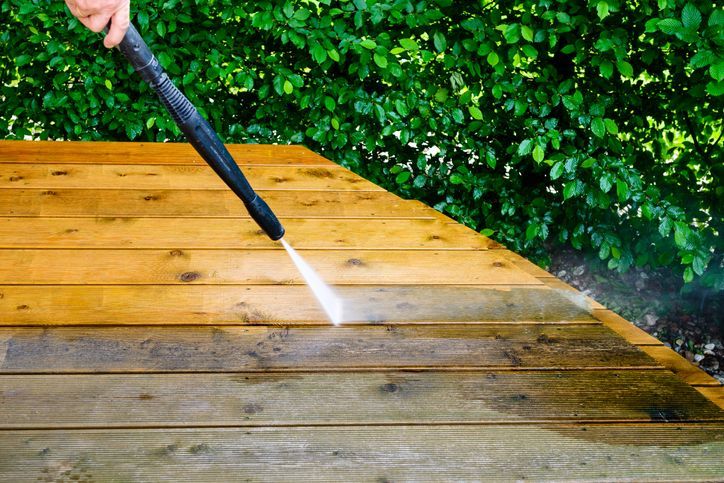
Keeping your home clean goes beyond just the inside—it’s equally important to maintain your exterior. Regular pressure washing helps prevent damage caused by dirt, mold, and mildew buildup, and it leaves your house looking like new. Consider the top five areas of your home's exterior that need routine power washing to keep them in pristine condition.
